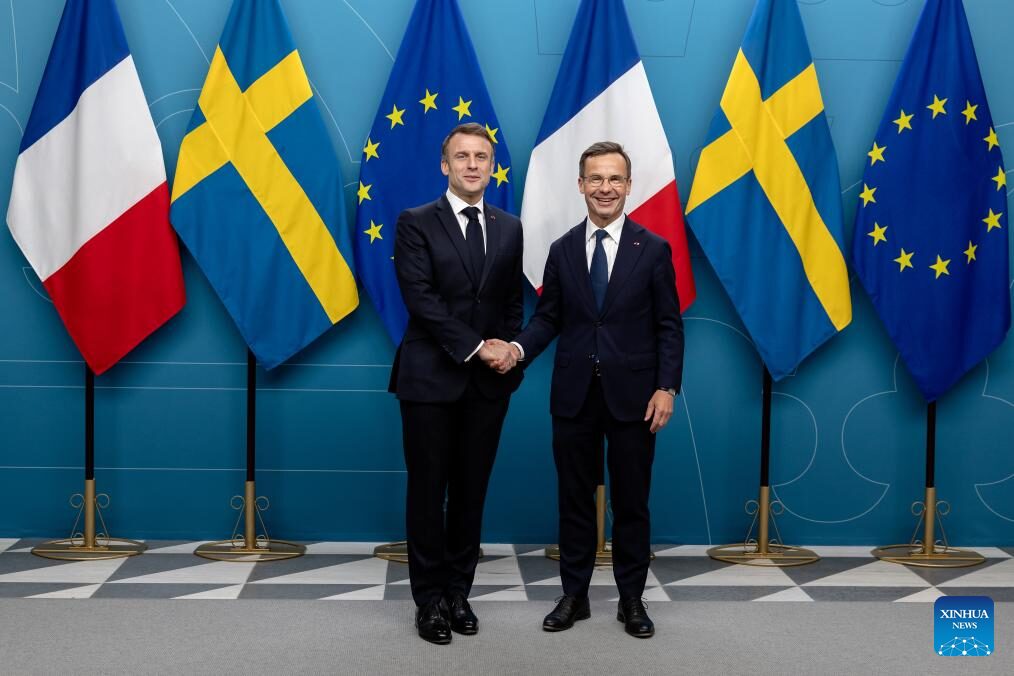France and Sweden have recently affirmed their commitment to a strategic partnership, emphasizing support for Ukraine, the energy transition, and competitiveness. During French President Emmanuel Macron’s state visit to Sweden in January, Macron announced the establishment of this partnership, with a key focus on developing nuclear power. This agreement, under discussion for several months, follows the decision made over a year ago to initiate bilateral cooperation in the nuclear energy sector.
The collaboration aims to see the construction of multiple nuclear reactors on Swedish territory, with both nations confirming the project at the European Energy Summit in December. The broader objectives of this renewed bilateral partnership underscore a shared commitment to addressing challenges such as supporting Ukraine, promoting energy transition, and enhancing competitiveness. The forthcoming nuclear cooperation between France and Sweden is positioned as a significant aspect of their joint efforts to advance strategic goals in these crucial areas.
Join us on Telegram: https://t.me/tfiglobal
The recent agreement between France and Sweden is noteworthy, coinciding with France’s shift in energy policy under President Emmanuel Macron’s second term. Departing from an anti-nuclear stance in his first term, France is now set to invest in the energy sector, planning the construction of six new reactors by 2035.
France’s nuclear sector, once a flagship industry, had faced neglect due to ecological concerns. However, the resurgence of interest in nuclear energy was prompted by the Russian-Ukrainian conflict. The conflict underscored the necessity for diversified energy sources beyond Russian gas and oil, stressing the strategic importance of enhancing autonomy in the energy sector. The agreement with Sweden aligns with France’s renewed commitment to nuclear energy.
Sweden’s decision to embrace nuclear power aligns with the recent victory of the Sweden Democrats, leading to a new centre-right majority government formed after the September 2022 elections. The government, emerging from this political shift, has set ambitious targets for constructing two reactors by 2035 and an additional 10 by 2045.
Read More: In the next 10 yrs. both Germany and France can LEAVE the EU
The development of Sweden’s nuclear power infrastructure will be facilitated through a partnership between the French state-owned company EDF (Electricité de France) and the Swedish company Vattenfall, based on exchanges of technology “for the participation in support of reactor maintenance, life extension and power upgrades of the reactors,” as stated in a letter of intent signed by French Ecological Transition Minister Agnès Pannier-Runacher and her Swedish counterpart Ebba Busch.
Beyond reactor installation, the collaborative agreement extends to research, with a significant emphasis on research and development, particularly in the treatment of radioactive waste.
Read More: Pitting Sweden Against Russia is a Stupid Stupid Plan by NATO
The nuclear agreement between France and Sweden is a pivotal component of the broader renewal of their bilateral strategic partnership, focusing on three shared objectives: “support for Ukraine, the energy transition, and competitiveness.” King Carl XVI Gustaf, represented by Prime Minister Ulf Kristersson, and President Macron expressed their commitment to fostering “innovation in sustainable, digital, and resilient societies.”
According to French Minister for Ecological Transition Pannier-Runacher, the Franco-Swedish agreement signifies the “return of nuclear power” at the European level. Pannier-Runacher asserts that this resurgence is essential for ensuring European sovereignty and energy security. Both France and Sweden aspire to assume a prominent role in the nuclear alliance, initiated in Stockholm in February 2023. This alliance currently comprises 11 European countries advocating for nuclear energy as the foremost carbon-free alternative.
Departing from an anti-nuclear stance in his first term, the recent strategic partnership with Sweden signals a renewed commitment to nuclear energy. Hence, Macron’s Nuclear U-Turn aptly characterizes the significant shift in France’s energy policy under President Emmanuel Macron’s second term.
